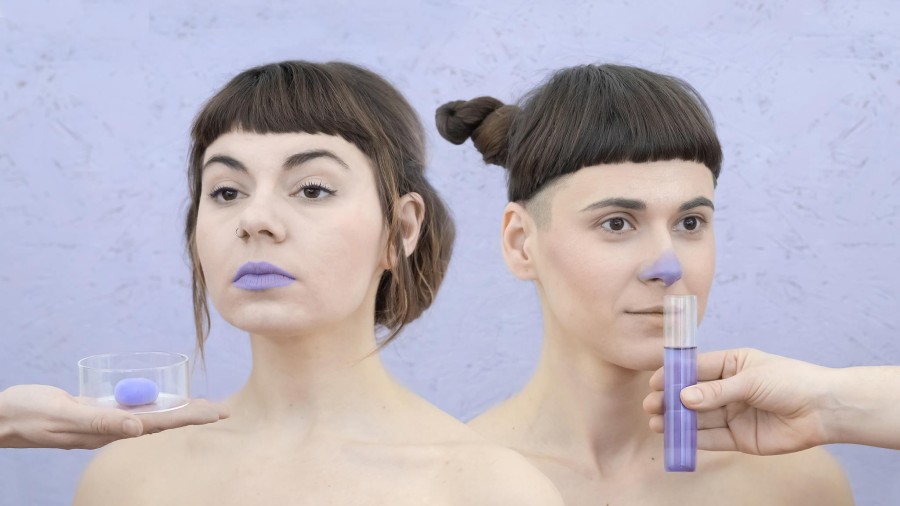
Stofan | An interview with Maria-Carmela and Kateřina
We met with Maria-Carmela Raso and Kateřina Blahutová, the two last participants in our Stofan experiment this year to discuss their thoughts and process. Join us at their opening on Tuesday 2nd of May at 16:00 on the first floor of the Reykjavik City Library Grófin, by the self chechout stations.
Which spot did you choose for your Stofa ?
We chose an area by the windows on the first floor where people can return their books. We chose this area because it feels very open, there is also ceiling height we can use and it seems to be one of the most public spots. The location is one of the busiest places that most visitors use during their visit. We want to confront the public exposure with something which is a very private and intimate activity.
What will you do in it ?
We will make a multisensory public ‘shower’ - creating a private moment in a public space. This is part-one of a two part series that will continue in May. The idea was inspired by the cultural shock in Icelandic swimming pools, which many foreigners experience at first, but with time and adjustment, the comfort zone usually shifts.
What kind of feelings would you like to give users ?
We would like people to try and find comfort in something that is seemingly uncomfortable. A safe space to feel unsafe. We can often use our senses to stimulate comfort (ie. the smell of lavender, nature sounds, touch of something soft, candle light, taste of chocolate etc.) and hopefully this installation will do that. We hope that our guests will feel a sense of escape in this immersive space even though there is a vulnerability in knowing that people can see and hear you.
If you could change one thing about the library and bring a new rule in, what would it be ?
That there are more multisensory spaces.These could offer both discovery experiences and relief in difficult situations. Little public private space pockets with a controllable environment which could serve many purposes. Let’s say someone is having a rough day and wanting to be left alone during their lunch break, or a child is going through a difficult time and their parents need to talk to them and find peace. Spaces like these could also offer safe space to people who are experiencing a panic attack or sensory overload. Immersive spaces that cut off the real world for a short period and offer comfort for body and mind.
What does comfort mean to you and how do you plan on translating it beyond language during your happening ?
I suppose we’re questioning what comfort is in this project - is comfort a sense of safety? We sometimes need to be uncomfortable in order to grow - can we become comfortable with the uncomfortable?
For me, (MC) comfort can be many things, but I especially feel this in darker spaces with low light and various scents. I love immersive experiences and being able to enter a dreamland or an alternate reality. I’ve often found things that are stereotypically spooky or eerie feel rather cozy to me. I’m not sure why that is but I am curious to find out.
For me (Katla), the ultimate comfort moment is taking a hot shower and having that little moment for oneself. The warmth in the body, feeling of a soft texture of a towel, nice smell and feeling refreshed. The installation offers some of that while asking whether we can be flexible with our comfort zone and adapt to circumstances.
Further information:
Martyna Karolina Daniel, Intercultural Specialist
martyna.karolina.daniel@reykjavik.is